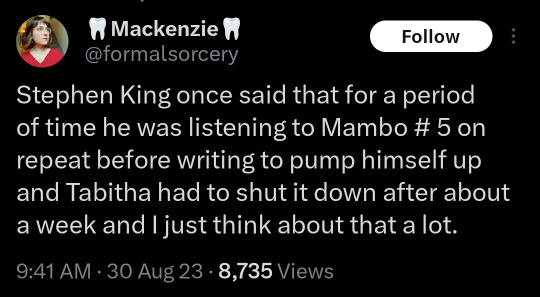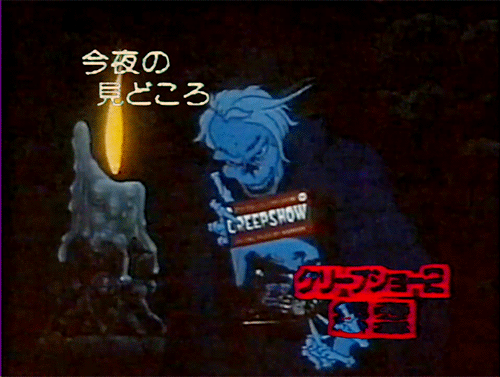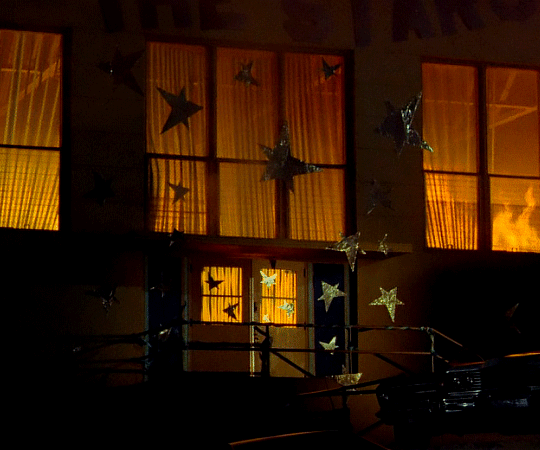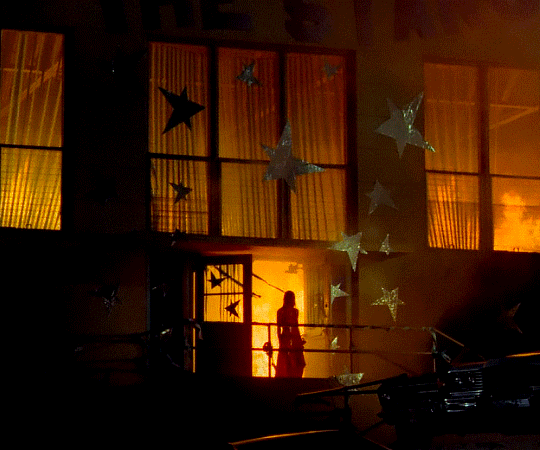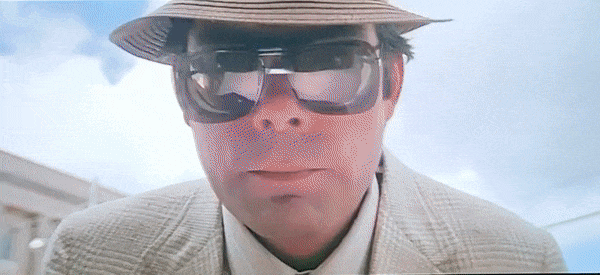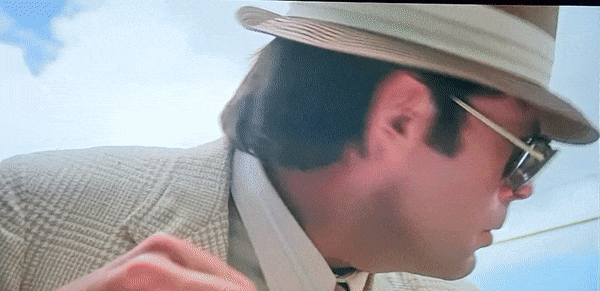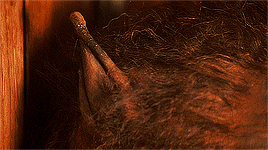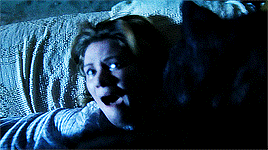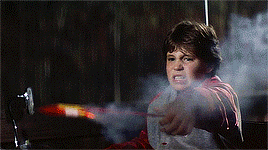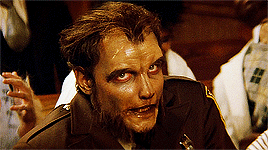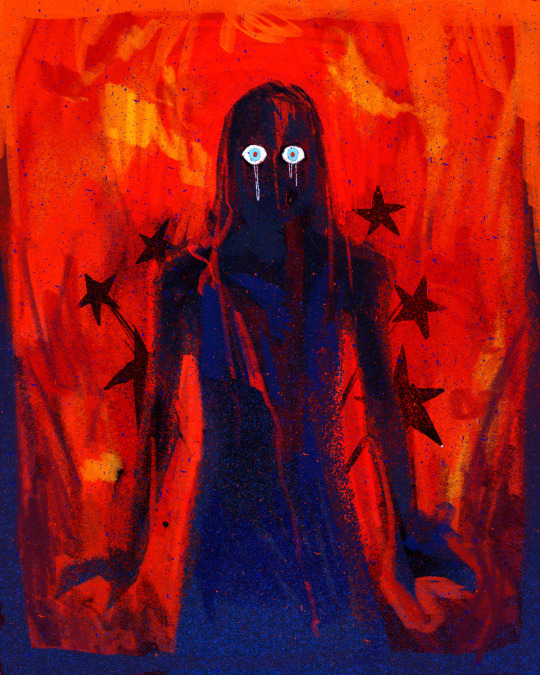Don't call me cookie and I won't call you cake. #stephenkingthings
Don't wanna be here? Send us removal request.
Text
“It’s not the pain I’m afraid of; I know about the pain. What I’m afraid of is the end of this small, sweet dream.”
— Stephen King
147 notes
·
View notes
Text


Sissy Spacek on the set of "Carrie," 1976
5 notes
·
View notes
Text
The most important things are the hardest to say. They are the things you get ashamed of, because words diminish them -- words shrink things that seemed limitless when they were in your head to no more than living size when they're brought out. But it's more than that, isn't it? The most important things lie too close to wherever your secret heart is buried, like landmarks to a treasure your enemies would love to steal away. And you may make revelations that cost you dearly only to have people look at you in a funny way, not understanding what you've said at all, or why you thought it was so important that you almost cried while you were saying it. That's the worst, I think. When the secret stays locked within not for want of a teller but for want of an understanding ear.
Stephen King | "The Body" | Different Seasons
15 notes
·
View notes
Text
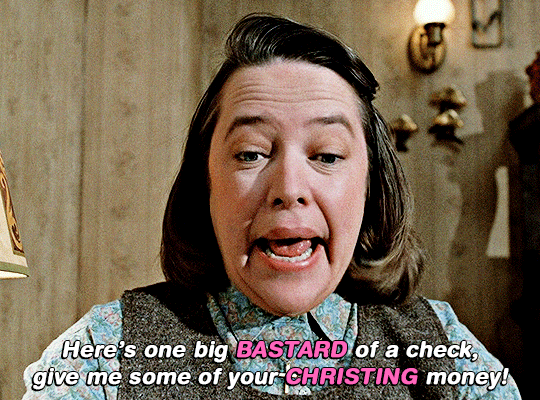

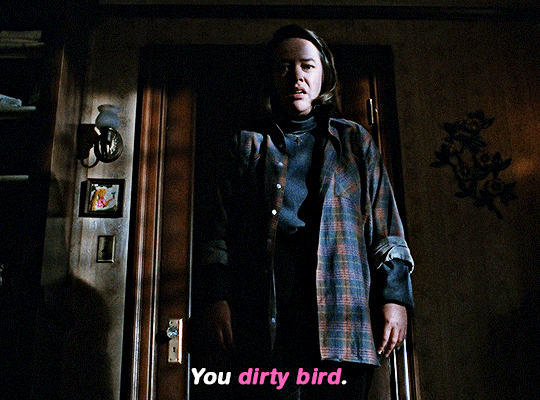
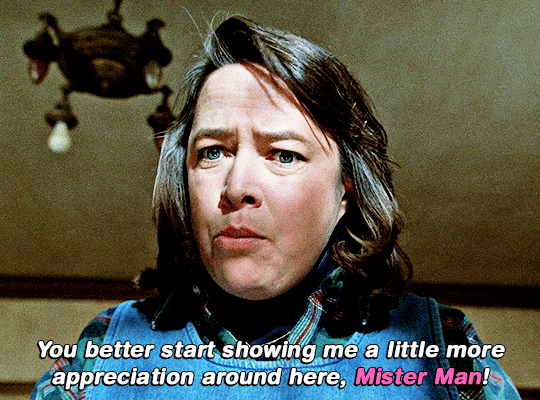
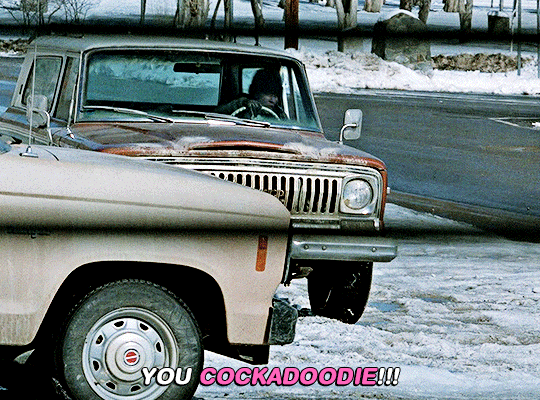
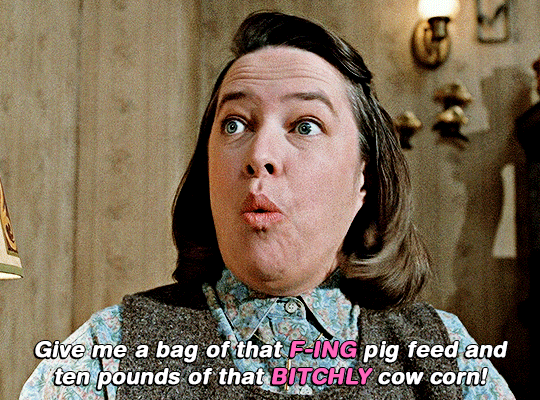
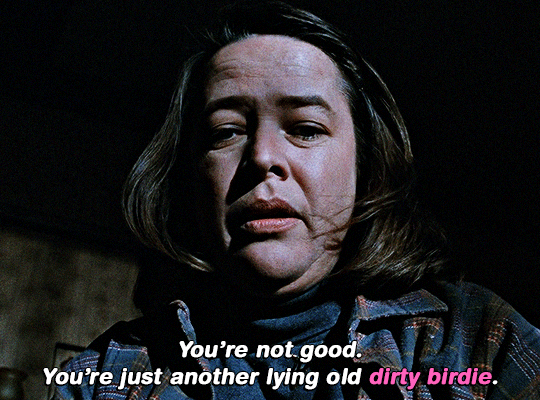

KATHY BATES as ANNIE WILKES in Misery (1990) dir. Rob Reiner
2K notes
·
View notes
Text
The X-Files - “Molly”
Written by Stephen King
Circa 1997 (SPEC)
Written before any input from the production team, this script was King’s first attempt that would eventually be developed into what became “Chinga.” In this version of the story, Mulder joins Scully on her vacation in Maine...


Mulder joins Scully in staying with her old college roommate...


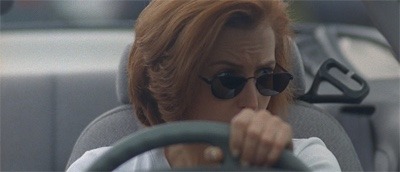
The story then takes a hard turn into a quasi-sequel to “Eve”:
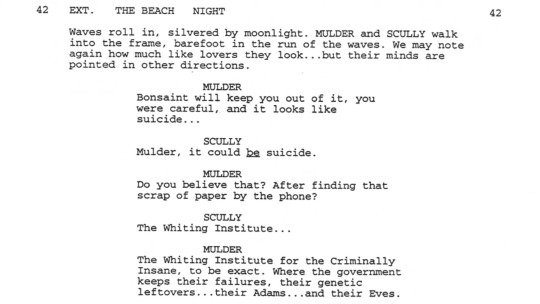
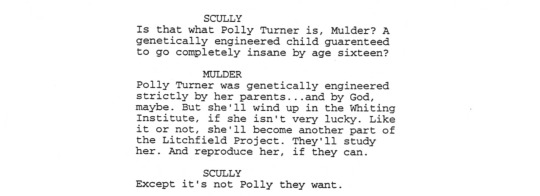
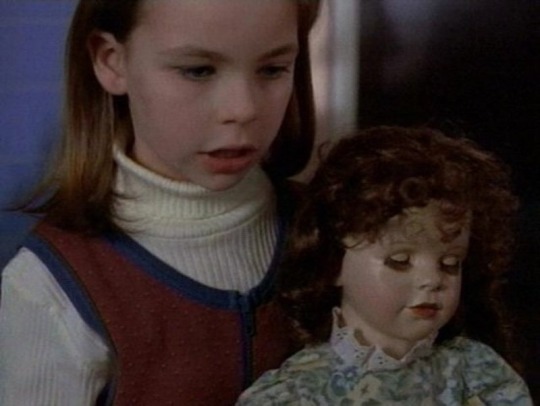
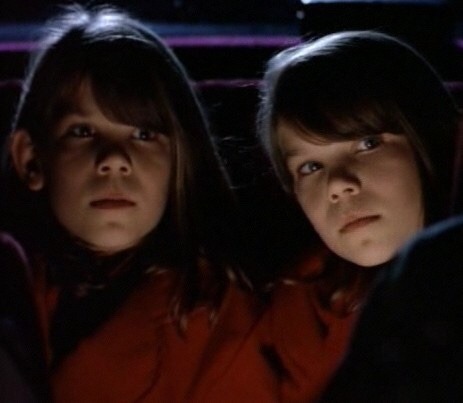
83 notes
·
View notes
Text
One of the most frustrating things about film adaptations of Stephen King's Carrie is the repeated omission of one primary feature of her appearance: her weight. She is not thin; she has bad skin, greasy hair, and frumpy clothing. However, upon the night of her prom, she is able to transform herself into someone considered to be attractive: whilst still being fat.
By continually casting thin, beautiful women in the role of Carrie, the films 1) imply that fat women cannot believably have Cinderella moments without shedding any pounds and 2) remove one of the most crucial aspects of the story: audience introspection.
The films do not force us to recognise and challenge our biases. We do not see ourselves in the bullies, who are humans, for better or worse -- as represented best by Sue Snell and Chris Hargensen. We do not see ourselves as being capable of what these teenagers did to Carrie, because their insults seem comedic and far-fetched to us, parody beyond relatability: Sissy Spacek and Chloe Grace Moretz do not elicit any implicit revulsion in us. They are thin, and beautiful, and the bullies' motivations in harassing them are outlandish and superficial beyond empathy.
However, if Carrie were to be kept fat, the audience would finally be forced to look inward and to recognise the ugliness in themselves that is instilled by societal norms. Instinctually, society rejects fat, unattractive women. Carrie, were she to remain as she was in the book, would elicit the same reaction from general audiences as she does from her classmates at school.
No longer would people be able to distance themselves from their own disdain for women and girls like Carrie by sitting safely behind the absurdity that is an attractive female lead being ridiculed for their appearance. They too would exist as Miss Desjardin did in the novel: sympathetic, pitying, but ultimately put off by Carrie, solely because she does not fit the requirements of modern, aesthetic womanhood.
People would finally be forced to reconcile that with themselves. How much more resonant would Carrie's retribution be if audiences finally felt the full impact of its being directed at themselves just as much as it is directed toward the ill-fated prom attendees? How important of a discussion could it have inspired even back in the 70s?
Even still, Hollywood is too scared to fully sit audiences before a mirror. Even still, we are unable to accept the lessons a novel like Carrie offers without having its protagonist altered nearly beyond recognition. How long will it be before we are able to portray the tragedy of Carrie with all of its nuances intact? How long before we are able to feel the sting of injustice just as sharply when a protagonist is fat as we do when a pretty and thin protagonist is injured?
I'm still waiting for the Carrie modern audiences need to see.
1K notes
·
View notes
Text

In King's 1992 short story, "You Know They Got a Hell of a Band," a bickering couple take the scenic route and find themselves in a little Oregon town with a 50s theme -- Rock and Roll Heaven.
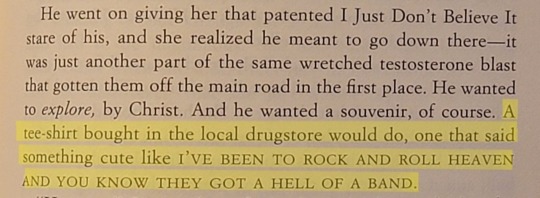
I had the crew neck made for me by an Etsy artist and she did a brilliant job, just what I asked, and it's not her fault but I don't much like how it turned out. Still obsessed with the idea, though. Might see if I can't do something with the iron on letters I've got.
#stephen king#tshirt#sara's king tee of the day#you know they got a hell of a band#nightmares and dreamscapes
2 notes
·
View notes
Text
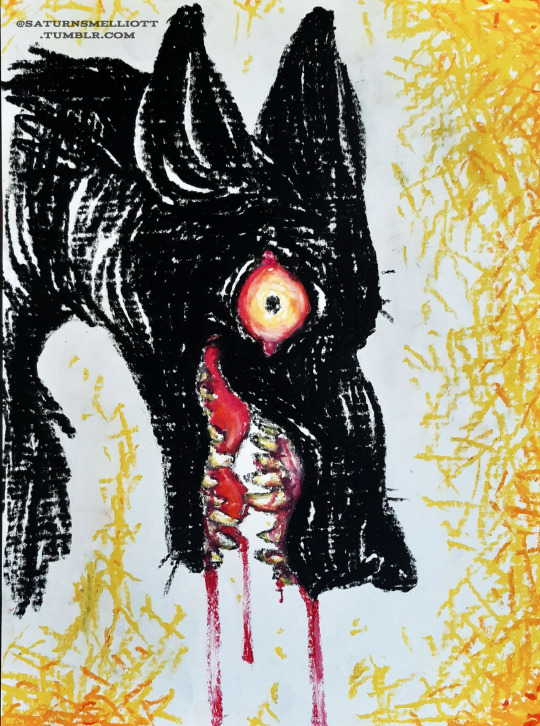
Finished reading Cujo yesterday. This is what my mind conjured as the monster in Tad's closet. :o}
85 notes
·
View notes
